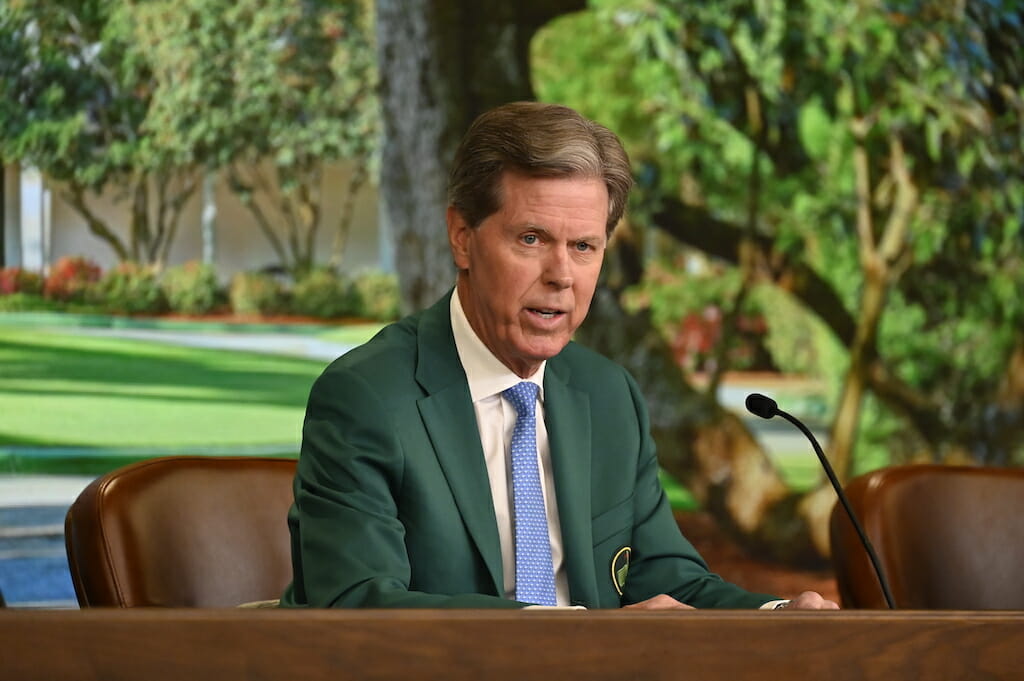Fred Ridley says he welcomes the idea that golf’s definition is expanding. There are long-established brands such as the PGA Tour, LPGA, and the Masters — the tournament where he’s the chairman — and there are newer brands such as TGL and Top Golf, which sell the idea of being modern.
However, Ridley also offers a warning. He knows what he doesn’t want to happen.
“We don’t want golf to become like every other sport,” Ridley said.
He was speaking on Thursday at Pilar Golf Club in Argentina, the host of this week’s Latin America Amateur Championship, an event founded by the Masters, the USGA, and the R&A. With this year marking its 10th edition, it is still a relative newcomer to the golf scene itself. A reporter was curious, though: What would golf look like in the future, considering that “nowadays, the tendency is to have more urban sports, more dynamic sports,” while “golf lasts for about four hours?”
Mike Whan, the USGA’s CEO, shared a story as part of his response. He mentioned attending the previous week’s opener for TGL, the tech-infused, two-hour-long simulator league backed by Tiger Woods and Rory McIlroy. He said people told him they loved hearing player interactions — though, with a DJ playing music at the arena, he heard none of them. He had a different experience.
“I think that’s exciting for the game,” Whan said. “I think it’s exciting that the game can come to you wherever you are, both physically and in terms of interest, in a way that can bring you into the game. I think that’s not only an exciting idea for me personally, but it’s proving to be great for the game in terms of on-course participation.”
Whan noted that what people once thought of as golf was changing.
“And I think in a good way,” he continued. “Whether we’re talking about the driving range or a TGL-style experience, or simulator golf around the world, I think we are starting to provide the game in different ‘bite-sized’ formats, if you will, depending on where the player comes into contact with it.
“I know my young children would find an hour and a half at a simulator to be ‘golf,’ and when I was their age, I probably wouldn’t have considered that. I think that’s good for the game. The game is big enough that we have room, quite frankly, and we should invite the game to be played in a lot of different formats. There are many ways to come into this game. It’s exciting. I can speak to the United States. If you went back 10 years ago, three out of every 10 golfers who teed off at a golf course for the very first time had already experienced the game before they got there. Today, that number is eight out of 10.
“So, think about how different the game is if you’ve already experienced how to play it before you walk onto the tee box of a golf course for the first time. That’s what has really happened in our game. That’s how our game has exploded around the world, and certainly in the United States as well.”
Ridley agreed that golf’s newest versions are well-received. He said they create fans, and golf needs more of them.
But he also explained why he plays. To him, golf isn’t like other sports.
He hopes that essence doesn’t get lost amidst change.
“I think it’s important to remember to think about what makes golf so special,” Ridley said. “Why do all of us who love the game, love it? Why do we think it’s the greatest sport, and why is it different from other sports?
“A lot of it has to do with the history and integrity of the game. You play by the rules. You call the rules on yourself. The honour of the game. The camaraderie that’s created by playing golf. I think, as we try to expand the fan base, we need to keep that north star in sight because we don’t want golf to become like every other sport. I think that’s a really important thing to consider.”
























Leave a comment